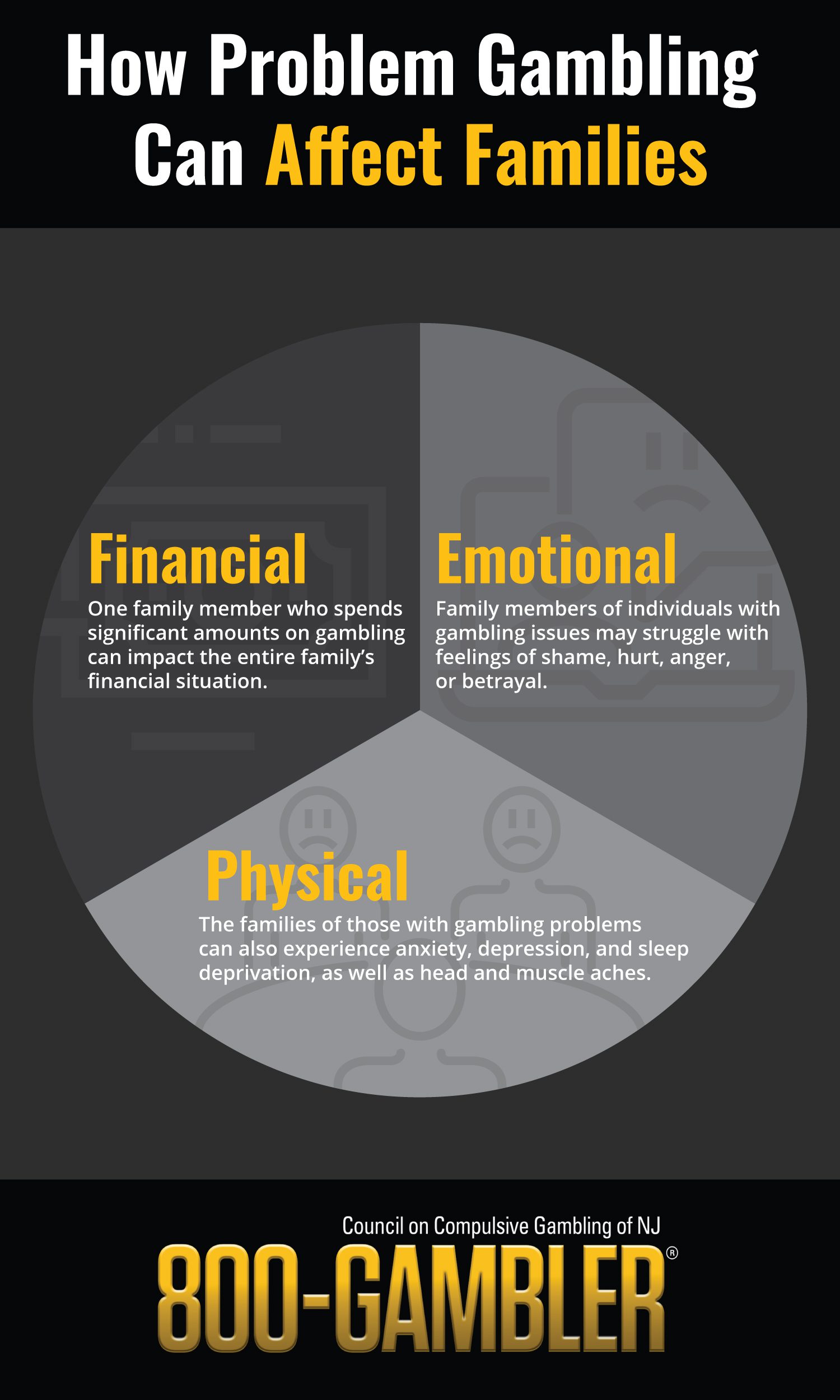The emotional toll it takes on people is devastating, and in many cases a gambling addiction can also bring bouts of depression, and in extreme situations may lead to suicidal thoughts or tendencies. People with a gambling addiction are also prone to anxiety, high stress and extreme sadness. Watch a presentation on the Phenomenon of Gaming and It’s Relationship to Anxiety and Depression presentation by Carolyn Rubenstein, Ph.D. And Gabrielle Avery-Peck, Ph.D. From the Center for Treatment of Anxiety and Mood Disorders at the ADAA Conference 2019. Gambling Anxiety & Depression 1. Gambling: anxiety & depression Dr Sean Sullivan ABACUS Counselling, Training and Supervision Ltd 2. Problem gambling causes depression so treat the gambling and the depression will go away. No; gamblers often get more depressed in the months after stopping. Phenomenon of Gaming and It’s Relationship to Anxiety and Depression Watch a presentation on the Phenomenon of Gaming and It’s Relationship to Anxiety and Depression presentation by Carolyn Rubenstein, Ph.D. And Gabrielle Avery-Peck, Ph.D. From the Center for Treatment of Anxiety and Mood Disorders at the ADAA Conference 2019.

October is home to National Mental Health Awareness Week. While these seven days are designated to educate people about mental health issues, it’s important that the other 358 follow suit. This movement’s goal is to let everybody know that mental illness is not equated to personal weakness. According to Neva Pryor, Executive Director of the Council on Compulsive Gambling of New Jersey, The National Alliance on Mental Illness’ website encourages everybody to see the person for who they are and not for their illness.
Did You Know? 1 in 5 Americans lives with a mental health condition. You or somebody you know likely deals with mental illness every day, and needs compassion, empathy and understanding. What they don’t need is judgment, criticism or a stigma.
The National Alliance on Mental Illness and the Council on Compulsive Gambling of New Jersey are taking the pledge to be #StigmaFree, and you can, too.
- Together wecan promote acceptance.
- Together wecan actively challenge negative social stereotypes.
- Together wecan shift the social and systemic barriers for those living with mental health conditions.
- Together wecan encourage understanding through powerful words and meaningful actions.
Share your #StigmaFree images, posts, and support on every platform. Inspire others through Facebook, Twitter, Instagram and SnapChat.

How does mental health relate to gambling?
- In one of our previous blog posts, “How Gambling Affects Your Health,” we discuss how gambling can cause mental stress ranging from anxiety to depression and suicidal thoughts. Combining preexisting mental health disorders can multiply these side effects and lead to gambling spiraling out of control.
- The correlation between problem gambling and mental health issues is complicated. Sometimes gambling can lead to mental health problems, and sometimes the sequence occurs in reverse order.
Picture This: You’ve been suffering from anxiety and panic attacks for five years. You’ve found a great regimen of treatment that has been working. Your best childhood friend is getting married, and you are invited to the bachelor(ette) party in Atlantic City. Everything is going fine until the group decides to post up at the roulette table.
You think to yourself, “I should probably sit this round out. I am living paycheck to paycheck and a financial loss would really set me back.” You maintain your composure. You sit back and watch your friends gamble for hours on end while you take advantage of the complimentary cocktails. “Am I the only one no having fun? One or two bets can’t hurt,” you think to yourself.
(Blog Image Source – Roulette Table)
You decide to join the crowd and play a few spins. You exchange your hard-earned $100 bill for some plastic chips and after a few wagers (some winning and some losing) you up the stakes. “This is easy. I am having fun, and I only lost $50,” you say to the stranger to your left.
Fast forward one hour, two drinks and three ATM withdrawals. The fun has stopped, and so has the winning streak. Your group heads back to the hotel rooms, and you are having second thoughts. “Was that $1,000 worth the rush? Was that the cost of fitting in?” You may even justify the decision to yourself and conjure a plan to win back your losses in a different type of game (i.e. sports gambling in East Rutherford, NJ, or in Atlantic City).
Everybody is going to sleep, but your mind is uneasy. You realize that you have to tell your roommates about losing next month’s rent and the stress snowballs into intense anxiety. You can’t sleep. You can barely breathe. “Oh no. Please. No. Not here. I can’t have a panic attack here.” Unfortunately, it’s too late. Your fate has been decided for you, and your mental health issue is rearing its ugly head…
In conclusion:
- Don’t let the bright lights and peer pressure trigger your recurring mental health issues. Whether you have a health issue or gambling addiction, help is available.
- Situations like the one above do not have to affect you or your loved ones ever again. There is hope. For more information on our services and the relationship between mental health and gambling, call 1-800-GAMBLER.

Our support team is available 24 hours a day, and we are here for you, your friends, or anybody who needs help handling problematic gambling and sports betting around East Rutherford, NJ.
Most people, whether they have a problem with gambling or not, can relate to the idea that people get excited when they win, and feel disappointed when they lose.
Beyond the initial feelings of sadness from losing, when someone has a gambling problem they may feel depressed, as well as perhaps experiencing feelings of shame and guilt.
Signs of depression may include:
- Increased irritability and frustration
- Loss of interest in activities and friends
- Feeling tired and worthless
- Struggling to sleep or finding it difficult to get out of bed
- Loss of appetite
- Negative or hopeless thoughts

Most people experience some of these signs at different times in their lives but if you notice they are happening more often you may be feeling depressed.
Remember there are services available to help you with these feelings, you can speak to one of our counsellors who can help you find the right one, and it’s completely confidential, free and available 24/7.
How common is depression and gambling?

A recent study has found that people with a gambling problem were twice as likely to be depressed and 18 times more likely to experience severe psychological distress than people without a gambling problem.
Further to this, the connection between mood and gambling is not always one-way and being depressed may push someone towards gambling in the first place.
For example, feeling depressed, down or alone can place people at risk of developing or increasing their gambling problem:
- People may use gambling as a break or escape from negative feelings or situations
- Gambling may provide a 'pick me up' or a sense of feeling connected to other people.
Dealing with gambling and depression
It is really important to look at your gambling and mood when addressing the problem. This will help you decide what kind of supports and strategies you might want to consider using.
For example, if you gamble because you are lonely, it will be important to look at both the gambling and the loneliness when taking steps to get your control back.
A simple step
Increasing your activity level can be one simple way to help with your depression. It can boost your mood, give you a different focus, increase your sense of control, makes you feel less tired and can help you think more clearly.
Just as you would train before running a marathon for the first time, starting with small steps can be the key. For example:
- Make your bed – it gets you moving and a sense of achievement for completing an activity.
- Go for a walk, gradually increasing how far you go each day.
- Cook a recipe you haven’t tried before.
- Sign up for a regular activity, this could include:
o Dancing
o Cooking
o Fitness/Gym
o Men's shed
o Gardening
o Art Class
o Painting
o Knitting
o Woodwork
o Get a Pet
o Singing
Make sure it’s something you enjoy doing, or gives you a sense of satisfaction, this way you will look forward to it and be motivated to participate!
Next steps
Gambling Anxiety And Depression Coping Skills
If you think depression is an issue for you, it is important to get help:
Problem Gambling Anxiety And Depression
- Speak to one of our counsellors. They will discuss some strategies with you and can also refer you to local services.
- Talk to someone who you trust and know will listen to your concerns.
- Visit your G.P. or a mental health professional. They can conduct an assessment and provide treatment and referral if appropriate.
- Seek support from others in our peer support forums